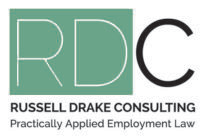Minimising the spread of coronavirus is important in keeping employees safe and well at work. This should be done before thinking about the interests of the business or organisation. The Ministry of Health has information available on workplace infectious disease prevention and controls. However, in the case of an emergency, employers and employees should remember to keep in regular contact and deal with each other in good faith.
Employees Intending to Travel Overseas:
If any employee is intending to travel overseas, they should be encouraged to seek advice from the Ministry of Health regarding precautions to be taken for the specific global region in which they are intending to travel.
The employee should be encouraged to discuss this information with their employer prior to the anticipated date of departure to identify what if any precautions or restrictions may be placed upon them, with respect to their employment, on their return to New Zealand.
An employee has an obligation under the Good Faith provisions of The Employment Relations Act 2000, and their obligations under the Health and Safety at Work Act 2015 to be responsive and communicative with their employer regarding their travel plans and any inherent risks, and not to do anything that could compromise the safety and wellbeing of the business, its staff and clients on their return.
If an employee is intending to travel overseas an agreed plan of action to align to their return to NZ should be agreed between the employer and the employee in advance. This may include a period of self-isolation where the employee will not be entitled to return to work for a period after the date of their return to NZ if they have visited a country identified as a risk by the Ministry of Health.
The recommended minimum period of self-isolation is 14 days.
Employees returning from Overseas Travel:
If any employee returns from overseas travel and they have not visited a country deemed by the Ministry of Health as a risk, the employer can provide no restrictions on their return to work date. The employee should however be aware that the COVID-19 Virus is continuing to spread to new regions and that they should continue to monitor their health for a minimum period of 14 days after their return to NZ, and visit their doctor immediately if they feel unwell or have an increased temperature.
If the employee feels unwell or has an increased temperature during this initial 14 day period they should alert the employer immediately in order that precautionary steps can be taken to ensure the safety and well-being of all other employees and/or clients.
Such measures may include the employee agreeing to use their paid sick leave entitlement or unpaid leave, until such times as the employee is cleared of any infection.
Sick Leave and Payment Entitlements
Where an employee returns from an overseas destination identified by the Ministry of Health as a place of risk to Covid-19 the employee is required to alert the employer to this prior to seeking to return to work.
If the employee, either at the request of the Ministry of Health or through personal decision, is required to remain in isolation, the employee is entitled to draw down on their current sick leave entitlements.
If the employee does not have a current sick leave entitlement the employee may request that the employer approve paid or unpaid leave to cover the period of required isolation. An employer may also elect to advance the employee annual leave or sick leave to cover any required absence of the employee, with this being recommended where a current entitlement does not exist.
If an employer directs an employee to remain away from work due to concerns about an infectious virus the employer may be liable to continue to pay the employee during the period of their absence. In such cases, it would therefore be recommended that the employee immediately visits a doctor to receive a professional opinion, with the period of absence then determined by the doctor’s assessment and recommendations. If the doctor deems the person to be unfit then the employee will be required to remain off work drawing down on their sick leave, annual leave entitlements, or if these do not exist, remaining off work on unpaid leave until declared fit.
If an employer’s operations are so affected through the affects of COVID-19 an employer can consider a period of closedown to all or part of its operations. This provision will generally be covered within the employee’s employment agreement with the employee taking annual leave or unpaid leave to cover the required absence. In extreme cases where a business may be required to close down for an extended period, Work and Income NZ do assess the employees right to receive an emergency benefit where no other source of income is available. In such cases, employers should be encouraged to contact WINZ immediately if a potential closedown is being considered.
Medical Certificates
It would be legitimate for an employer to request an employee returning from any overseas destination to present a medical clearance certificate prior to returning to work with this being most applicable where the employee has been subject to a period of isolation or has visited a destination identified by the Ministry of Health as a place of potential risk.
In such cases, it would be recommended that the employer agree to cover the costs associated with the employee obtaining such a certificate as this would fulfil the employer’s obligations to ensure that all other remaining staff were not exposed to infection inadvertently from an employee who does not want or cannot afford to visit a doctor.
General Precautions
Given the unknown characteristics of the COVID-19 virus it is debatable as to whether face masks provide any form of protection to people contracting the virus from others.
However, consistent with the employers health and safety obligations, the employer should provide and enforce the wearing of facemasks where an employee is required to come into direct contact with people who may hold a higher risk than the average person of carry the virus (international travellers), or where the virus may present a more significant risk to an individuals wellbeing (i.e. the elderly or medically infirm).
The greatest precaution however remains reminding employees to wash their hands thoroughly on a regular basis, particularly prior to handling food or after using toileting facilities. The employer should be more vigilant in ensuring that additional supplies of handwash, sanitiser and paper towels are available at several locations around their facilities and that regular reminders of personal hygiene are provided to staff.
For Further Information
If you require further or more specific information with regards to the employment obligations associated with Covid-19 please feel to contact us on info@russelldrakeconsulting.co.nz

